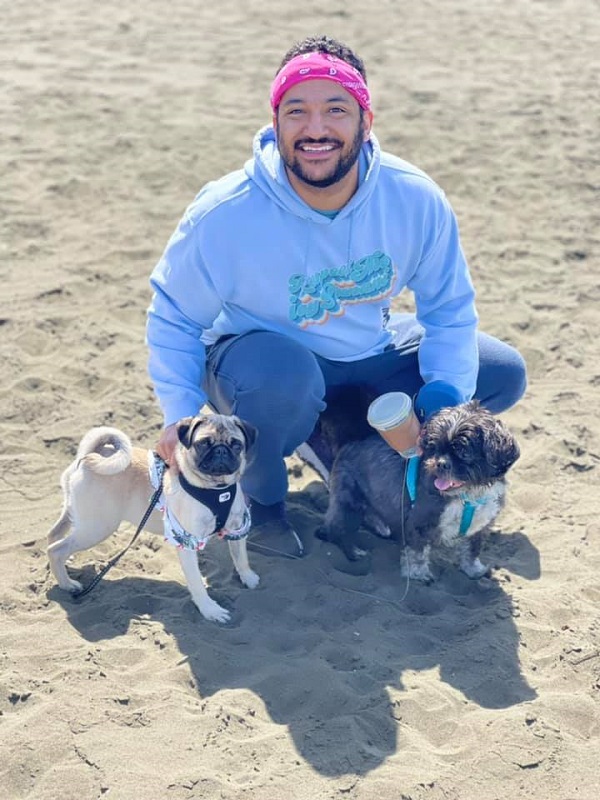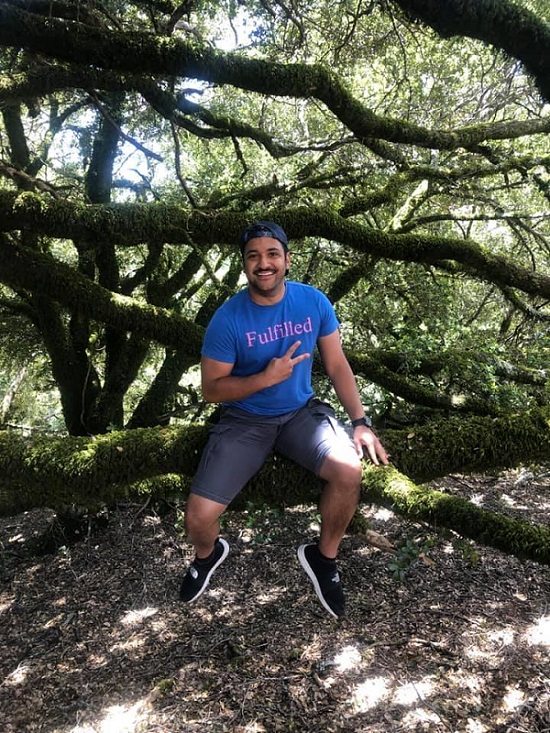
Ever since he was small, Nelson Borges wanted to be a marketer. As a child, he would come up with his own commercials and jingles and act them out for his family. But after five years of working for a marketing agency, he started to question if he was in the right line of work. In the agency setting, he felt as though he was “at the mercy of my clients from nine to five.”
Contrary to his expectations, the work was more execution-based rather than strategic or creative, and he longed for more autonomy. Shortly before he left the marketing agency, his employer asked him to learn how to use Google Analytics to track ad impressions for their clients, and that’s when Nelson realized he loved working with data.
Marketing is becoming increasingly data-driven with the advent of precision marketing, which is the art of using data on customer behavior to make major P&L decisions such as which products to bring to market, how much to produce, and how to improve the product over time. This forces marketers to pull in new data sources and retrain existing algorithms.
Nelson says that marketing agencies now compete for clients based on their data competency in addition to more traditional metrics such as the size of their portfolio or client base and industry reputation.
“Brands are looking for agencies that know pretty much everything, but a lot of agencies don’t have data talent, so brands are leaving those agencies for different ones,” he said.
Now, he’s an insights analyst at LinkedIn Marketing Solutions, where his job is to gather data insights for companies that advertise on LinkedIn to help them understand their audiences better and the ROI of their ad spend.
I had always wanted to work in marketing since I was a kid. In college, I took internships in PR, at an advertising agency, and as a film coordinator to see what aspects of marketing I wanted to pursue.
After college, I landed a job at HERO Marketing, which is an agency in downtown San Francisco. I got that job through networking, actually. I had done a final project in college where I had to interview the CEO, so I reached out to her after graduation and she remembered me.
Eventually, I worked my way up to marketing manager, but I felt that there was a disconnect within me. I was at the mercy of clients from nine to five and a lot of my work was execution-based rather than strategic or creative. I started analyzing performance data for my clients, and that’s when I realized I was in love with data analytics and telling a story using data.
I knew I wanted to leave the agency world but I didn't know what to do next. I decided to get a master’s degree. I even studied for the GMAT, but when I asked people about the return on investment of an MBA, they didn’t know.
Given that the tuition was between $30,000-$60,000, I decided I didn’t want to go into debt. Then I saw an ad for the Data Analytics Career Track at Springboard and I thought, this is almost like marrying marketing and data together, which is something I want to do. And it was a quarter of the price of a master’s degree.
Yes, I still would have studied data analytics. My agency actually asked me to learn Google Analytics, and that’s when I realized, "Oh, I really like this."
I'm an insights analyst for the LinkedIn Marketing Solutions product. I’m aligned with a specific industry and my job is to provide analytics and insights to their marketing and sales reps. Basically, I provide data for business problems or questions clients want answers for.
Ultimately, I’m looking to show the value of advertising on LinkedIn. For example, if our client is having a hard time understanding who their audience is, I provide data to help them understand their audience.
The way I interpret storytelling is turning something like hard numbers and raw data into a story that helps the client solve a problem. I do that through data visualization–creating charts and making engagingPowerPoint presentations. The challenge is you have to understand your client’s needs and how to solve their problems using analytics.
The job guarantee was really enticing for me. I was also weighing the option of enrolling in a master’s program for $30,000 versus paying $7,000 for Springboard. Compared to other bootcamps, I would say that graduates from Springboard seemed really happy with the program and the mentorship. Other bootcamps like General Assembly didn't really relay to me that they would provide mentorship and help me find a job, or that they really cared about me, but Springboard did.

Amazing. Her name was Maria and she was so sweet, which is something that I really looked for in the beginning. I tried a few other mentors, but she and I connected on a different level. I think she's the reason why I got the job at LinkedIn. She was able to articulate each subject to me that I did not understand and all the questions I had were answered promptly.
It was mostly coursework-related. I wanted to pick her brain about SQL all the time, and it's funny because now in my job SQL is the programming language I use all the time. Then I had a career coach who helped me build and optimize my LinkedIn profile.
It was difficult, to be honest. I started job searching before Springboard and there were lots of no's. But after Springboard, I got better at interviewing. One thing that Springboard helped me do was stay organized using an Excel spreadsheet, networking, and documenting which roles I had applied for. Ultimately, I landed my job at LinkedIn when a recruiter found my profile, and that’s probably because it was optimized, which it wouldn't have been if not for Springboard.
Everything I did at Springboard–what I learned through the curriculum, career coaching, and networking–is what I’m doing in real life in my new job at LinkedIn. What I'm trying to get at is to keep going and finish the bootcamp because you will use what you’ve learned in the future.

I did an analysis of diversity for the top 20 films on Netflix in 2020. I didn’t just analyze the cast but also the creator and directors in terms of gender and race. I visualized the stats and made some recommendations at the end for how Netflix could improve. LinkedIn, my current employer, was really impressed with my project because I used SQL, Excel, and Tableau to tell that story.
I found that one-third of those movies were made by either a woman or someone of color, so that says a lot. The majority of films were made by white men. While that’s nothing new, when you actually see it confirmed by the data, it can be quite a shock. Sometimes you read stories about the lack of diversity and inclusion, but they’re just words. But then when you actually visualize it using charts, it hits in a different way.
My career coach. I found value in everything, especially learning SQL and Python. I'm actually trying to implement Python more in my current job. It's not necessary to know, but it's something that I think would make my job easier.
Yeah. I think that if you're looking for a career that allows you to be autonomous and use a variety of challenging tools like SQL and Python, then this career is good for you. I also really like the creative aspect of my job–building decks, graphs, and charts and telling a story. So if you enjoy those things, then I think that data analytics is the right career for you.









